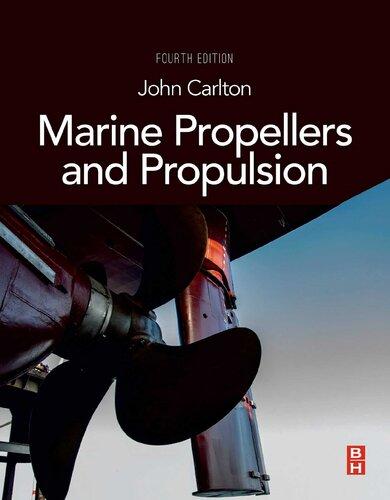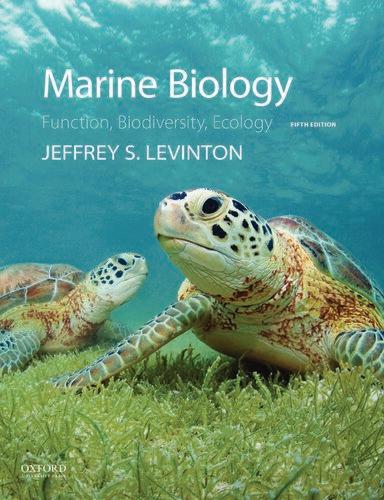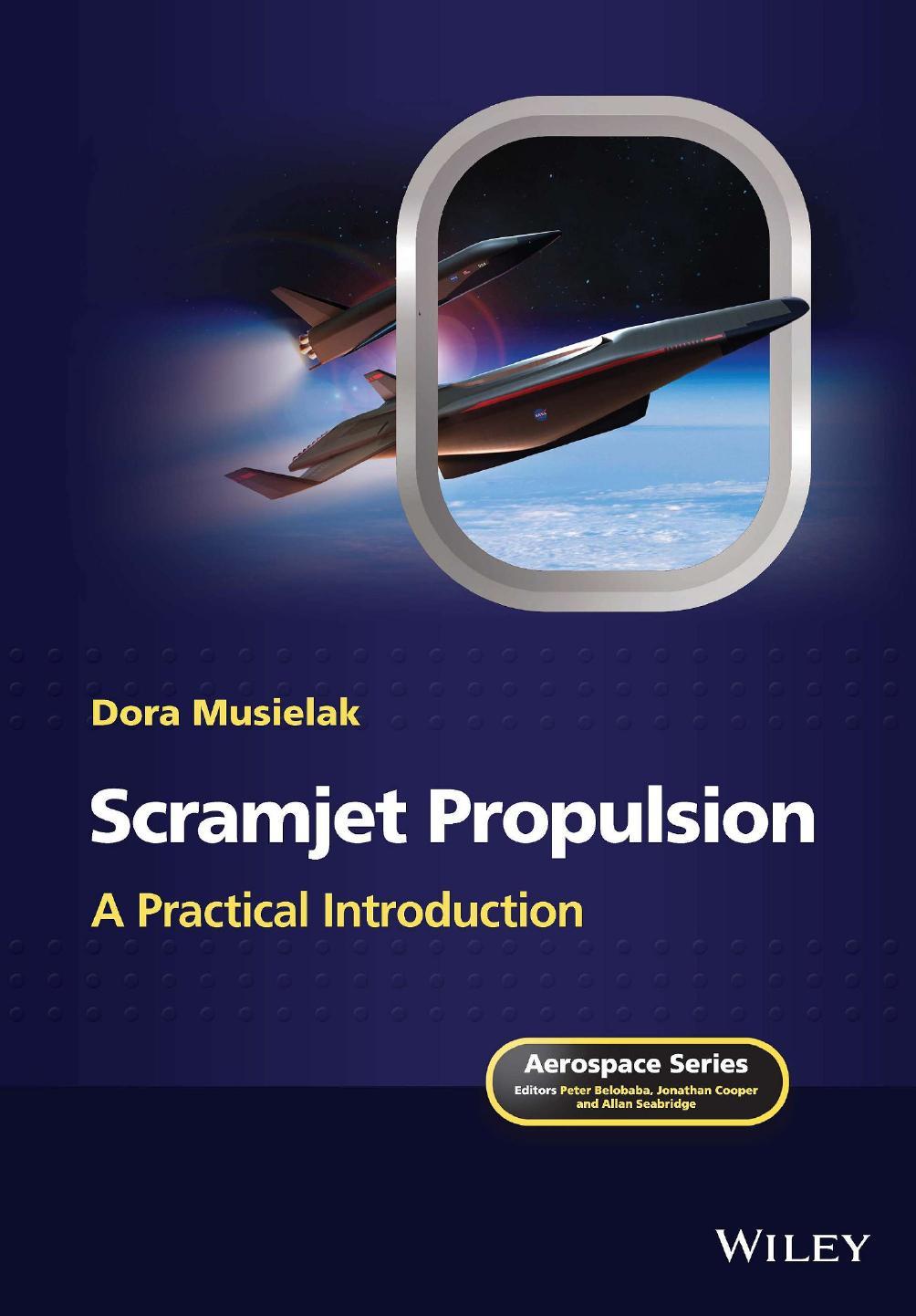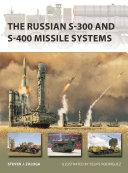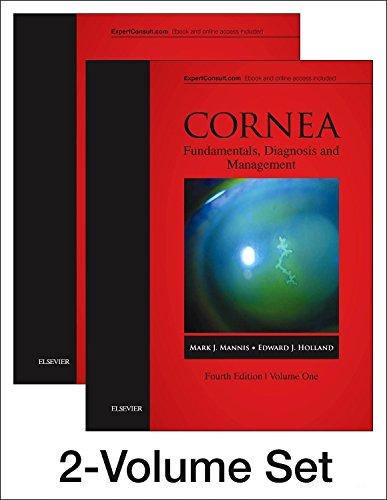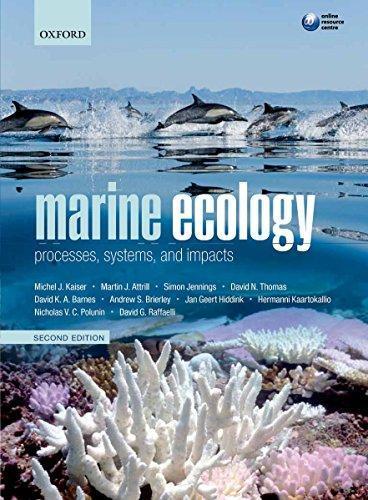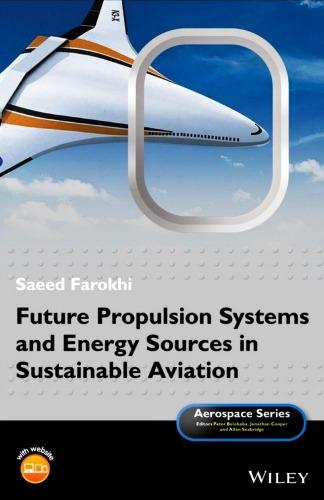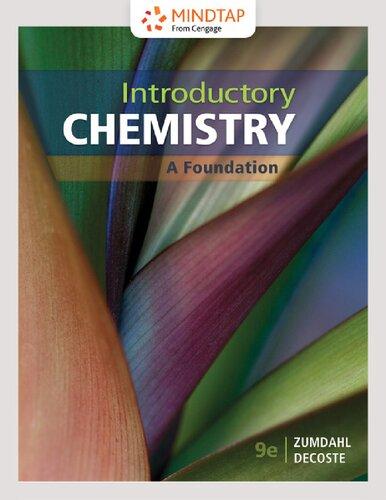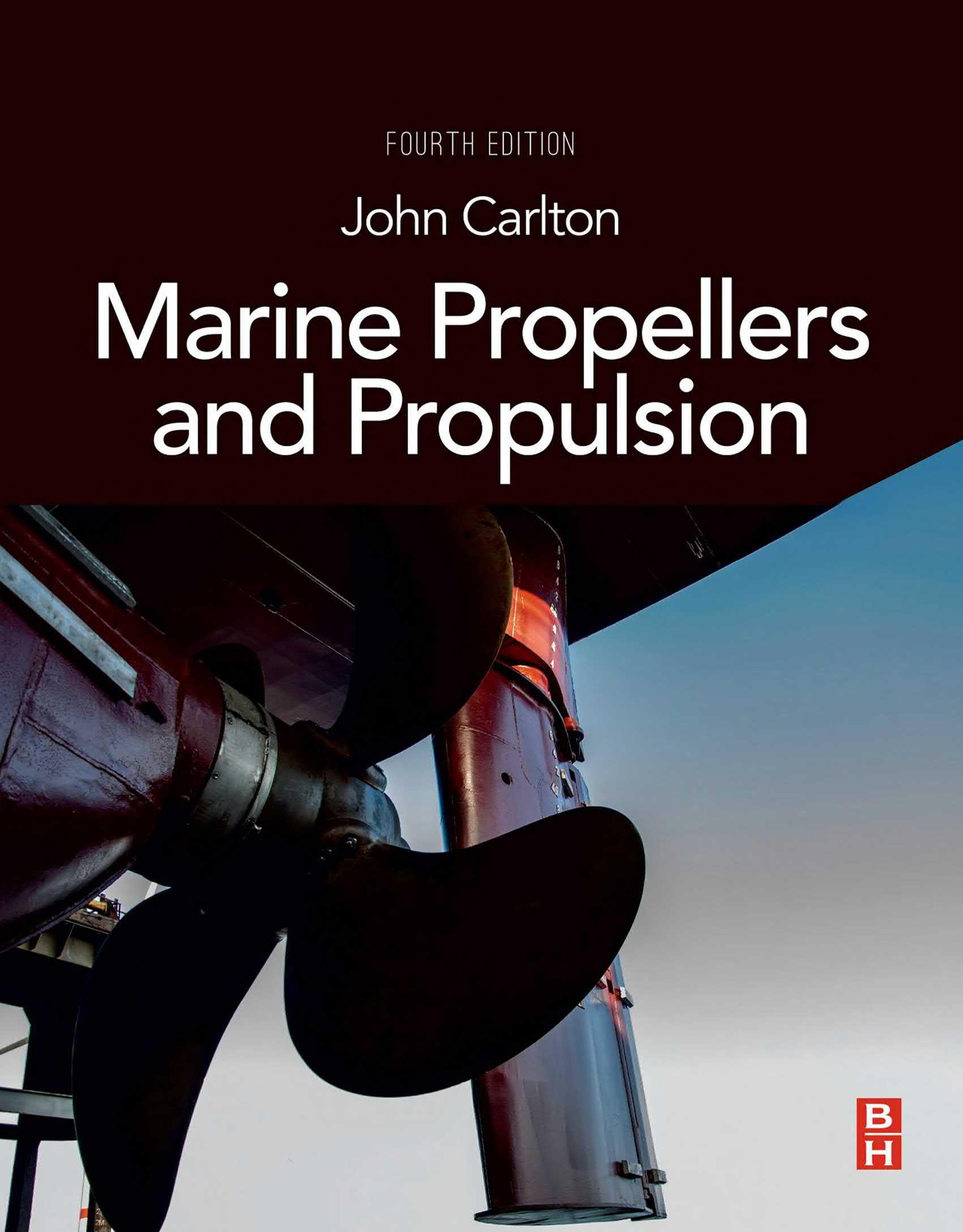Nomenclature
UpperCase
A cross-sectionalarea
AC admiraltycoefficient
AD developedarea
AE expandedarea
AM midshipsectionarea
AO discarea
AP projectedarea
AR aspectratio
B moldedbreadthofship
BP propellerpowercoefficient
BAR bladearearatio
CA correlationfactor sectionareacoefficient
Cb shipblockcoefficient
CD dragcoefficient
CF frictionalresistancecoefficient
CL liftcoefficient
CM momentcoefficient sectionmoduluscoefficient
CP pressurecoefficient shipprismaticcoefficient propellerpowercoefficient
CT thrustloadingcoefficient totalresistancecoefficient
CW wave-makingresistancecoefficient
D dragforce propellerdiameter
Db behinddiameter
Do diameterofslipstreamfarupstream
Ds shaftdiameter
F force
fetchofthesea
FB Bollardpull
Fn Froudenumber
G boundarylayeruniqueshapefunction nondimensionalcirculationcoefficient
H hydraulichead
Hp pumphead
I dryinertia
Ie polarentrainedinertia
IVR inletvelocityratio
J advancecoefficient
Jp shippolarmomentofinertia
K PrandtlorGoldsteinfactor
Kn Knapp’ssimilarityparameter
Kp pressurecoefficient
KQ propellertorquecoefficient
KQS spindletorquecoefficient
KT thrustcoefficient
KTN, KTD ductthrustcoefficient
KTP propellerthrustcoefficient
KY sideforcecoefficient
L lengthofshiporduct liftforce
sectioncentrifugalbendingmomentarm
LP soundpressurelevel
LPP lengthofshipbetweenperpendiculars
LR lengthofrun
LWL lengthofshipalongwaterline
M momentofforce
Ma Machnumber
N rotationalspeed(RPM) numberofcycles numberoffatiguecycles
NS specificspeed
P propellerpitch
PB brakepower
PD deliveredpower
PE effectivepower
PG generatorpower
PS shaftpower
Q flowquantity propellertorque
QPC quasipropulsivecoefficient
QS totalspindletorque
QSC centrifugalspindletorque
QSF frictionalspindletorque
QSH hydrodynamicspindletorque
R radiusofpropeller,paddlewheel,orbubble specificgasconstant
RAIR airresistanceofship
RAPP appendageresistance
Re realpart
RF frictionalresistance
Rn Reynoldsnumber
RT totalresistance
RV viscousresistance
RW wave-makingresistance
S surfacetension
shipwettedsurfacearea
SA additionalloadscalefactor
Sa apparentslip
SBF solidboundaryfactor
SC camberscalefactor
T temperature draftofship propulsorthrust
TA draftaft
TF draftforward
TN, TD ductthrust
Tp propellerthrust
UT propellertipspeed
V volumevelocity
Va speedofadvance
Vs shipspeed
X distancealongcoordinateaxis
Y distancealongcoordinateaxis
W resultantvelocity widthofchannel
We Webernumber
Z bladenumber distancealongcoordinateaxis
Zm sectionmodulus
LowerCase
a propelleraxialinflowfactor
a1 propellertangentialinflowfactor
ac cracklength
ar resistanceaugmentationfactor
b spanofwing
c wakecontractionfactor sectionchordlength
cd sectiondragcoefficient
cl sectionliftcoefficient
cli idealsectionliftcoefficient
cm sectionmomentcoefficient
cmax limitingchordlength
f frequency functionof
g accelerationduetogravity functionof
h fluidenthalpy height
hydraulichead
hb heightofbulbousbowcentroidfrombaselinein transverseplane
i counter
iG sectiongeneratorlinerake
iP propellerrake
iS sectionskew-inducedrake
iT totalrakeofpropellersection
j counter
k counter
kc liftingsurfacecambercorrectionfactor
ks meanapparentamplitudeofsurfaceroughness
kt liftingsurfacethicknesscorrectionfactor
kx liftingsurfaceidealangleofattackcorrectionfactor
(1+ k) frictionalformfactor
l counter length
lcb longitudinalcenterofbuoyancy
m masscounter
m specificmassflow
n rotationalspeed(rps)
p sectionpitch pressure
pc cavityvariation-inducedpressure
pH propeller-inducedpressure
po referencepressure noncavitatingpressure pitchofreferencesection
pv hull-inducedvibratorypressure vaporpressure
p 1 apparent-inducedpressure
q dynamicflowpressure
r radiusofapropellersection
rh huborbossradius
s lengthparameter
t time thrustdeductionfactor sectionthickness
tF thicknessfraction
tmax maximumthickness
to notionalbladethicknessatshaftcenterline
u localvelocity
v localvelocity
va axialvelocity
vr radialvelocity
Vt tangentialvelocity
vT tidespeed
w downwashvelocity
meanwakefraction
wF Froudewakefraction
wmax maximumvalueofwakefractioninpropellerdisc
wn nominalwakefraction
wp potentialwakefraction
wT Taylorwakefraction
wv viscouswakefraction
ww wave-inducedwakefraction
x distancealongacoordinateaxis
nondimensionalradius(r/R)
xc distancealongchord radialpositionofcentroid
xcp centerofpressuremeasuredalongchord
xo referencesection
y distancealongcoordinateaxis
yc camberordinate
yL sectionlowersurfaceordinate
yt thicknessordinate
yU sectionuppersurfaceordinate
z distancealongcoordinateaxis
Suffixes
m model
s ship
U upper
L lower
b bound,behind
F free
O referencevalue
x referenceradius
GreekandOtherSymbols
a angleofattackgascontent
ad cavitationbucketwidth
ai idealangleofattack
aK aircontentratio
a0 zeroliftangle
b advanceangle
b« hydrodynamicpitchintheultimatewake
bi hydrodynamicpitchangle
G circulation
g localvortexstrength lengthparameter ratioofdragtoliftcoefficient(Cd/Ce)
g g correctiontoangleofattackduetocascadeeffects
D changeinparameter displacementofship
d boundarylayerthickness lineardisplacement propellerspeedcoefficient
« thrusteccentricity transformationparameter
z Bendemannstaticthrustfactor dampingfactor
transformationparameter
hb propellerbehindhullefficiency
hh hullefficiency
hi idealefficiency
hm mechanicalefficiency
ho propelleropenwaterefficiency
hp pumpefficiency
hr relativerotativeefficiency
u pitchangle transformationparameter momentumthicknessofboundarylayer
ufp facepitchangle
uip propellerrakeangle
unt nose-tailpitchangle
uo effectivepitchangle
us sectionskewangle
usp propellerskewangle
uw angularpositionoftransitionwakeroll-uppoint
L frequencyreductionratio
l wavelength source-sinkstrength ship-modelscalefactor
m coefficientofdynamicviscosity
r densityofwater
ra densityofair
rL leadingedgeradius
rm densityofbladematerial
s cavitationnumber stressonsection
s a alternatingstress
s F corrosionfatiguestrength
s i inceptioncavitationnumber
s L localcavitationnumber
s MD meandesignstress
s n cavitationnumberbasedonrotationalspeed relativeshaftangle
s o freesteamcavitationnumber
s R residualstress
s s bladesolidityfactor
s x bladestressatlocationonblade
τ shearstress
τ C thrustloadingcoefficient
y coefficientofkinematicviscosity
f angleofrotationinpropellerplane hull-formparameter velocitypotential angulardisplacement flowcoefficient shaftalignmentanglerelativetoflow
c transformationparameter gascontentnumber energytransfercoefficient
V angularvelocity
v angularvelocity
— volumetricdisplacement
Abbreviations
a.c. alternatingcurrent
AEW AdmiraltyExperimentWorks,Haslar
AP afterperpendicular
ATTC AmericanTowingTankConference
BHP Brakehorsepower
BS BritishStandard
CAD computer-aideddesign
CAM computer-aidedmanufacture
cwt hundredweight
(1cwt ¼ 12lbf ¼ 50.8kgf)
DES design
DHP deliveredhorsepower
DTNSRD DavidTaylorNavalShipResearchandDesignCentre
EEDI energyefficiencydesignindex
EHP effectivehorsepower
ft feet
HMS HerMajesty’sShip
hp horsepower
HSVA HamburgShipModelBasin
IMO InternationalMaritimeOrganization
ISO InternationalStandardsOrganization
ITTC InternationalTowingTankConference
LDV laserDopplervelocimetry
LE leadingedge
LES largeeddysimulation
LNG liquidnaturalgas
MARIN MaritimeResearchInstituteoftheNetherlands, formerlyNSMB
MEPC MarineEnvironmentProtectionCommitteeofIMO
MCR maximumcontinuousrating
mph milesperhour
NACA NationalAdvisoryCouncilforAeronautics
NC numericallycontrolled
NCR normalcontinuousrating
OD oildistribution
PIV particleimagevelocimetry
PHV propulsorhullvortex qrs quarters(4qrs ¼ 1cwt;1cwt ¼ 50.8kgf)
RANS ReynoldsaveragedNavierStokes
RH righthanded
rpm revolutionsperminute
shp shafthorsepower
SM Simpson’smultiplier
SPA selfpolishingantifouling
SSPA StatensSkeppsprovningsanstalt,Goteborg
TE trailingedge
THP thrusthorsepower
VLCC verylargecrudecarrier
VTOL verticaltake-offandlanding
TheEarlyDevelopmentoftheScrew Propeller
BothArchimedes(c.250BC)andLeonardodaVinci(c.1500) canbecreditedwithhavingconsidereddesignsandideas, whichwouldsubsequentlybeexploredbyshippropulsion engineersmanyyearslater.InthecaseofArchimedes,his thoughtscenteredontheapplicationofthescrewpump, whichbearshisnameandthisprovidedinspirationtothe 19th-centuryengineersinvolvedinmarinepropulsion.Unfortunately,however,italsogaverisetoseveralsubsequentmisconceptionsaboutthebasisofpropelleractionbycomparingit tothatofascrewthread.IncontrastLeonardodaVinci,in hissketchbooks,whichwereproducedsome1700yearsafter Archimedes,showsanalternativeformofscrewpropulsion basedontheideaofusingfanblades,whichhadasimilar appearancetothoseusedforcoolingpurposestoday.
Thedevelopmentofscrewpropulsionaswerecognizeit todaycanbetracedbacktotheworkofRobertHookewhois perhapsbetterrememberedforhisworkontheelasticityof materials.Hookeinhis PhilosophicalCollections,presentedtotheRoyalSocietyin1681,explainedthedesign ofahorizontalwatermill,whichwasremarkablysimilar initsprincipleofoperationtotheKirsten-Boeingvertical axispropellerdevelopedtwoandahalfcenturieslater. Hooke’swatermillcomprisedsixwoodenvanes,geared toacentralshaftandpinnedverticallytoahorizontalcircularrotor.Thegearingconstrainedthevanestorotate through180degreesabouttheirownspindleaxesforeach completerevolutionoftherotor.
Duringhislife,Hookewasalsointerestedinthesubject ofmetrologyandinthecourseofhisworkhedevelopedan airflowmeterbasedontheprincipleofawindmill.Hesuccessfullymodifiedthisinstrumentin1683tomeasurewater currentsandthenforesawthepotentialofthisinventionto propelshipsifprovidedwithasuitablemeansofmotive power.Asseenfrom Fig.1.1 theinstrumentcomprisedfour, flatrectangularbladeslocatedonradialarmswiththeblades inclinedtotheplaneofrotation.
Someyearslaterin1752,theAcademiedesSciencesin Parisofferedaseriesofprizesforresearchintotheoretical methodsleadingtosignificantdevelopmentsinnavalarchitecture.Asmightbeexpected,manyofthefamous
mathematiciansandscientistsofEuropewereattractedby thisofferandnamessuchasd’Alembert,Euler,andBernoulliappearinthecontributions.Bernoulli’scontribution, forwhichhewonaprize,introducedthepropellerwheel, shownin Fig.1.2,whichheintendedtobedrivenbyaNewcomensteamengine.Withthisarrangement,hecalculated thataparticularshipcouldbepropelledatjustunder2½ knotsbytheapplicationofsome20–25hp.Opinion, however,wasstilldividedastothemostsuitablepropulsor configuration:indeed,asitwastobeformanyyearsto come.Forexample,theFrenchmathematicianPaucton, workingataboutthesametimeasBernoulli,suggesteda differentapproach,illustratedin Fig.1.3,whichwasbased ontheArchimedeanscrewprinciple.
Thirty-threeyearsaftertheParisinvitationJoseph BramahinEnglandproposedanarrangementforascrew propellerlocatedatthesternofavessel,which,asisseen from Fig.1.4,containsmostofthefeatures,whichwe
FIG.1.1 Hooke’sscrewpropeller(1683).
Another random document with no related content on Scribd:
yet fully shew, that the devil is in possession of Protestant, as well as Popish churches.
And first, can it be said, that mammon is less served by Christians, than by Jews and Infidels? Or can there be a fuller proof, that Christians, Jews, and Infidels, are equally fallen from God, since truth itself hath told us, That we cannotserveGodandmammon? Is not this as unalterable a truth, as if it had been said, Ye cannot serve GodandBaal? Or can it be affirmed, that the Mammonisthas more of Christ in him, than the Baalist, or is more or less an idolater for being called a Christian, a Jew, or an Infidel? Look now at all those particulars, which Christ charged upon the Jewish priests, Scribes, and Pharisees, and you will see them all acted over again in Christendom. And if God’s prophets were again in the world, they would have just the same complaints against the fallen Christian church, as they had against the old carnal stiff-necked Jews, namely, thatoftheirsilverandgold,theyhadmadethemselvesidols, Hosea viii. 4. For though figured idol-gods of gold are not now worshipped either by Jews or Christians, yet silver and gold, with that which belongs to them, is the mammon-god, that sits and reigns in their hearts. How else could be that universal strife through all Christendom, who should stand in the richest and highest place, to preach up the humility of Christ, and offer spiritual sacrifices unto God? What God but mammon could put into the hearts of Christ’s ambassadors, to make, or want to make a gain of that gospel, which from the beginning to the end, means nothing else but separation from every view, temper and affection, that has any connexion with thelustoftheflesh,thelustoftheeyes, andtheprideoflife? Our blessed Lord said a word to the Jews, that might well have made their ears to tingle, when he told them, that they had made his Father’shouseadenofthieves; because sheep and oxen were sold, and money-changers sitting in the outer court of the temple. Now if you will say, that mammon has brought forth no prophanation like this in our Christian church, your best proof must be this, because our church-sale is not oxen and sheep, but holy things, cures of souls, parsonages, vicarages, &c. and our money-changers, our buyers and sellers, are chiefly consecrated persons.
Look at things spiritual, and things temporal, and say if you can, that the same arts, the same passions, and worldly wisdom, are not as active in the one, as in the other. For if Christ at leaving the world, had said to his disciples, labour to be rich, make full provision for the flesh, be conformed to the world, court the favour and interest of great men, cloath yourselves with all the ♦ worldly honours, distinctions, and powers ye can get; I appeal to every man, whether Popish and Protestant churches need do any thing else, than that which they now do, to prove their faithfulness to such a master, and their full obedience to his precepts.
♦ “wordly” replaced with “worldly”
Again, Secondly, Ye have heard, saith our Lord, that it hath been said by them of old; thou shalt not forswear thyself, but shall performuntotheLord,thineoaths. But Isayuntoyou,swearnotat all. But notwithstanding this, through town and country, in all ignorant villages, in all learned colleges, in all courts spiritual and temporal, what with law-oaths, corporation-oaths, office-oaths, trade-oaths, qualification-oaths, simony-oaths, bribery-oaths, election-oaths, &c. &c. &c. there is more swearing and for-swearing, than all history reports of any idol-worshipping nations. It was said of old, becauseofswearing, thelandmourneth: It is full as true to say now, because of swearing, the land rejoiceth in iniquity, is full of prophaneness, and without any fear or awe of the divine Majesty, daily swallowing down all manner of oaths, with as much serious reflection, as pot-companions swallow down their liquor.
But to proceed to a third instance of the full power of Antichrist, through every part of governing Christendom.
In the darkest ages of Romish superstition, a martial spirit of zeal for the gospel, broke forth in kings, cardinals, bishops, monks, and friars, to lead the sheep of Christ, saints, pilgrims, penitents, and sinners of all kinds, to proceed in battle array, to kill, devour, and drive the Turks from the land of Palestine, and the old earthly Jerusalem. These blood-thirsty expeditions were called an holy war, because it was a fighting for the holy land; they were called also a croisade, because crucifixes made the greatest glitter amongst the sharpened instruments of human murder. Thus under the banner of the cross, went forth an army of church wolves, to destroy the lives of those, whom the Lamb of God died on the cross to save.
The light which broke out at the reformation, abhorred the bloody zeal of these Catholic heroes. But what followed from this new risen, reforming light, what came forth instead of these holy crusades? Why wars, if possible, still more diabolical. Christian kingdoms with blood-thirsty piety, destroying, devouring and burning one another, for the sake of that which was called Popery, and that which was called Protestantism.
Now who can help seeing, that Satan, had here a much greater triumph over Christendom, than in all the holy wars that went before? For all that was then done, by such high-spirited fighters for old Jerusalem’s earth, could not be said to be done against gospellight, because not one in a thousand of these holy warriors was allowed to see what was in the gospel. But now, with the gospel open in every one’s hands, Papists and Protestants make open war against every divine virtue, which can unite them with the Lamb of God, who taketh away the sins of the world; I say, against every divine virtue of the Lamb of God, for these are the enemies which Christian war conquers. For there is not a virtue of gospel-goodness, but has its death-blow from it. Now fancy to yourself, Christ, after his divine sermon on the mount, putting himself at the head of a blood-thirsty army, or St. Paul going forth with a squadron of fire and brimstone, to make more havock in human lives, than a devouring earthquake.
But if this be too blasphemous an absurdity to be supposed, what follows, but that the Christian who acts in the fury of war, acts in full contrariety to the whole nature of Christ, and can no more be said to be led by his Spirit, than those his enemies, who came forth withswordsandstavestotakehim.
When a Most ChristianMajesty with his Catholic church, sings a Te Deumat the high altar, for rivers of Protestant blood poured out; or an evangelic church sings praise to the holy Lamb of God, for helping them from his holy throne in heaven, to make Popish towns like to Sodom and Gomorrah, they blaspheme God, as much as Cain would have done, had he offered a sacrifice of praise to God, for helping him to murder his brother. Let such worshippers of God be told, that the field of blood gives all its glory to Satan, who was a murderer from the beginning, and will to the end of his reign, be the only receiver of all the glory, that can come from it.
A glorious Alexander in the Heathen world, is a shame and reproach to human nature, and does more mischief to mankind in a few years, than all wild beasts have done from the beginning of the world. But the same hero making the same ravage from country to country with Christian soldiers, has more thanks from the devil, than twenty Pagan Alexanders. To make men kill men, is meat and drink to their roaring adversary, who goeth about seeking whom he may devour. But to make Christians kill Christians for the sake of Christ’s church, is his highest triumph over the highest mark, which Christ hath set upon those whom he has purchased by his blood. This commandment, saith he, Igive untoyou, thatye love one another . By this shall all men know thatye are my disciples, ifye love one anotherasIhavelovedyou.
Can the duellist, who had rather sheath his sword in the bowels of his brother, than stifle that which he calls an affront, can he be said to have this mark of his belonging to Christ? Now, what is the difference between the haughty duellist meeting his adversary with sword and pistol behind a hedge, and two kingdoms with their highspirited regiments slaughtering one another in the field of battle? It is the difference that is between the murder of one man, and the murder of an hundred thousand.
Now imagine the duellist fasting and confessing his sins to God to-day, because he is engaged to fight his brother to-morrow; fancy again the conqueror got into his closet, on his bended knees, lifting up hands and heart to God, for blessing his weapons with the death of his brother; and then you have a pictured in little of great piety, that begins and ends the wars all over heavenly Christendom!
What blindness can be greater, than to think that a Christian kingdom, can have any other goodness, or union with Christ, but that very goodness, which makes the private Christian to be one with him, and a partaker of the divine nature? Or that pride, wrath, ambition, envy, covetousness, rapine, revenge, hatred, and murder, are only the worksofthedevil, whilst they are committed by private, or single men; but when carried on by all the strength and authority, all the hearts, hands, and voices of a whole nation, that the devil is then quite driven out of them, loses all his right and power in them, and they become holy matter of church thanksgivings, and the sacred oratory of pulpits?
Look at that which the private Christian is to do to his neighbour, or his enemy, and you see that very thing, which one Christian kingdom is to do to another.
Now suppose a man, redeemed from his fallen nature, by Christ formed in his soul, and then he can no more be hired to kill men gloriously in the field, than to carry a dark lanthorn by night to a powder-plot.
The temporal miseries which war carries along with it, wherever it goes, are neither to be numbered nor expressed. What thievery bears any proportion to that, which with the boldness of drum and trumpet, plunders the innocent of all that they have? And if themselves are left alive, with all their limbs, or their daughters unravished, they have many times, only the ashes of their consumed houses to lie down upon. What honour has war not gotten, from its tens and tens of hundreds of thousands of men slaughtered on heaps, with as little regret or concern, as at loads of rubbish thrown into a pit? Who, but the fiery dragon, would put wreaths of laurel, on such heroes heads? Who but he, could say unto them, Welldone, goodandfaithfulservants?
But there is still an evil of war much greater, though less regarded. Who reflects, how many hundreds of thousands, nay millions of young men, born into this world for no other end, but that they may be born again, and from sons of Adam’s misery, become sons of God, and fellow-heirs with Christ in everlasting glory; who reflects, I say, what nameless numbers of these, are robbed of God’s precious gift of life, before they have known the sole benefit of living; who are not suffered to stay in this world, till age and experience have done their best for them, have helped them to know the inward voice of God’s Spirit, helped them to find, and feel that curse, and sting of sin and death, which must be taken from within them, before they can die the death of the righteous; but instead of this, have been either forced, or tempted in the fire of youth, and full of strength of sinful lusts, to forget God, eternity, and their own souls, and rush into a kill or be killed, with as much furious haste, and goodness of spirit, as tiger kills tiger for the sake of his prey?
That God’s providence over his fallen creatures, is a providence of love and salvation, turning through ways of infinite wisdom, sooner or later, all kinds of evil into good, making that which was lost to be found, that which was dead, to be alive again; not willing that one single sinner should want that, which can save him from eternal death, is a truth as certain, as that God’s name is, I AM that I AM.
Amongst the unfallen creatures in heaven, God’s name and nature, is LOVE, LIGHT, and GLORY. To the fallen sons of Adam, that which was love, light, and glory in heaven, becomes infinite PITY and COMPASSION on earth, in a God, cloathed with the nature of his fallen creature, bearing all its infirmities, entering into all its troubles, and in meek innocence, living a life, and dying a death, of all the sufferings due to sin. Hence it was, that when this DIVINE PITY suffered its own life-giving blood to be poured on the ground, all outward nature made full declaration of its atoning, and redeeming power; the strength of the earth did quake, the hardness of rocks was forced to split, and long-covered graves to give up their dead. A certain presage, that all kinds of hellish wrath, malice, pride, envy, and earthly passions, which kept men under the power of Satan, must have the fullness of death, from that all powerful, all purifying blood of the Lamb, which will never cease washing RED into white, till all the sons of Adam are fit for their several mansions in their heavenly Father’s house.
Sing, O ye heavens, and shout all the lower parts of the earth, for this is OUR GOD that varies not, whose first creating love knows no change, but into a redeemingpitytowards all his fallen creatures.
*Look now at warring Christendom, what smallest drop of pity towards sinners is to be found in it? Or how could a spirit all hellish, more fully contrive and hasten their destruction? It stirs up every passion of fallen nature, that is contrary to the humble, meek, loving, forgiving, Spirit of Christ. It drives, and compels nameless numbers of unconverted sinners to fall, murdering and murdered, among flashes of fire, with the wrath and swiftness of lightning, into a fire infinitely worse than that in which they died. O sad subject for thanksgiving days, whether in Popish, or Protestant churches! For if there is a joy of all the angels in heaven, for one sinner that repenteth, what a joy must there be in hell over such multitudes of sinners, not suffered to repent? And if they who have converted many torighteousness,shallshineas thestarsinthefirmamentfor ever, what woe may they not fear, whose proud wrath and vain glory, have robbed such numberless troops of poor wretches, of all time and place of knowing what righteousness they wanted, for the salvation of their immortal souls!
*Here my pen trembles in my hand; but when, O when will one single Christian church, people, or language, tremble at the share they have in this death of sinners!
*For the GLORY OF HIS MAJESTY’S ARMS, said once a Most ChristianKing: Now if, at that time, his Catholic church had called a solemn assembly to unite hearts and voices in this pious prayer, “O blessed Jesus, dear redeeming Lamb of God, who camest down from heaven, to save mens lives, and not destroy them, go along we humbly pray thee, with our bomb-vessels and fire-ships, suffer not our thundering cannon to roar in vain, but let thy tender hand of love and mercy, direct theirballs to more heads and hearts of thine own redeemed creatures, than the poor skill of man is able of itself to do.” Had such prayers had more of the son ofperdition in them, than the Most Christian King’s glorying in his arms?
*Again, would you farther see the fall of the universal church, look at all European Christendom sailing round the globe, with fire and sword, and every murdering art of war, to seize the possessions, and kill the inhabitants of both the Indies. What natural right of man, what supernatural virtue was not here trodden under foot? All that you ever read or heard of Heathen barbarity, was here outdone by Christian conquerors. And to this day, what wars of Christians against Christians, blended with scalping Heathens, still keep staining the earth and the seas with human blood, for a miserable share in the spoils of a plundered Heathen world! A world, which should have heard, or seen, or felt nothing from the followers of Christ, but a divine love, that had forced them from distant lands, and through the perils of long seas, to visit strangers with those glad tidings of peace and salvation to all the world, which angels from heaven, and shepherds on earth, proclaimed at the birth of Christ.
*Here now, let the wisdomofthisworldfrom its learned throne condemn all this as enthusiasm; it need be no trouble to anyone to be condemned by that wisdom, which God himself hath condemned as foolishness. For the wisdom of this world hath all the contrariety to divinewisdom, that the flesh hath to the Spirit, earth to heaven, or damnation to salvation. It is a wisdom, whose Spirit and breath keep all the evil that is in fallen man alive, and which in its highest excellence, has only the full-grown nature of that carnalmind,which is at enmity against God. It is a wisdom, that turns all salvationtruths into empty, learned tales, that instead of helping the sinner to confess his sins, and feel themisery that is hid under them, helps him to an art of hiding, nay of defending them; and so the poor blinded sinner, lives and dies in a total ignorance of that light, blessing, and salvation, which could only be had by a broken and contrite heart. For [N. B.] with respect to conscience, this is the chief office of worldly wisdom; it is to keep all things quiet in the old man, that whether busied in things spiritual or temporal, he may keep up the lusts of the flesh, the lust of the eyes, and the pride of life, without any disturbance from religious phantoms, and dreams of idiots, who for want of sober sense, and sound learning, think that Christ really meant what he said in these words, Except a man be bornagain,hecannotenterintothekingdomofGod.
Now join (if you please) learning and religion to act in fellowship with this worldly wisdom, and then you will have a depravity of craft and subtlety, as high as flesh and blood can carry it, which will bring forth a glittering Pharisee, with a hardness of heart, greater than that of the sinner-publican.
This wisdom hath asked me, How it is possible for Christian kingdoms in the neighbourhood of one another, to preserve themselves, unless the strength and weapons of war, are every ones defence, against such invasions, incroachments, and robberies, as would otherwise be the fate of Christian kingdoms from one another?
This question is so far from needing to be answered by me, that it is wholly on my side; it confesses all, and proves all that I have said of the state of Christendom.—For if this is the governing spirit of Christian kingdoms, that no one of them can subsist in safety from its neighbour, but by its weapons of war, are not all Christian kingdoms equally in the same unchristianstate, as two neighbouring bloody knaves, who cannot be safe from one another, but as their murdering arms protect them? This plea therefore for Christendom’s wars, proves nothing else but the want of Christianity all over the Christian world, and stands upon no better a foundation of righteousness, than when one murdering knave kills another, that would have killed him.
But to know whether Christianity wants, or admits of war, Christianity is to be considered in its right state.—Now the true state of the world turned Christian, is thus described by the great gospelprophet. “They shall beat their swords into plow-shares, and their spears into pruning hooks: nation shall not lift up its sword against nation, (N. B.) neither shall they learn war any more.”—This is the prophet’s true Christendom, with the same essential mark set upon it, as when the Lamb of God said, Bythisshall all men know, ye are my disciples, ifyeloveoneanotherasIhavelovedyou.
Would you see when and where the kingdoms of this world are become a kingdom of God, the prophet tells you that it is thenand therewhere all enmity ceaseth.—“The wolf, saith he, shall dwell with the lamb, and the leopard shall lie down with the kid. The calf and the young lion and the fatling together, and a little child shall lead them. The cow and the bear shall feed, and their young ones shall lie down together, and the lion shall eat straw like the ox. The sucking child shall play on the hole of the asp, and the weaned child shall put his hand on the cockatrice’s den.”—For, N. B. theyshallnot HURT or DESTROY inallmyholymountain, that is, through all holy Christendom. Isaiahxi.6.
See here a kingdom of God on the earth; is nothing else but a kingdom of mere love, where all HURT and DESTROYING is done away, and every work of enmity changed into heavenly love.
As to the present state of Christendom, working under the spirit and power of the great fiery dragon, it is not my intention, to shew how any part of it can preserve itself from being devoured by every other part, but by its own dragon weapons.
But the Christendom I mean, that neither wants, nor allows of war, is only that where Christ is King, and his holy Spirit the governor of the wills, affections, and designs of all that belong to it.
It is my charge upon all the nations of Christendom, that this necessity of murdering arms, is the dragon’s monster, that is equally brought forth by all and every part of fallen Christendom; and that therefore all and every part, as well Popish as Protestant, are at the same distance from the Spirit of their Lord, and therefore all want the same entire reformation.
In these last ages of Christendom, many reformations have taken place; but alas! Truth must be forced to say, that they have been in all their variety, little better than so many lesser Babelscome out of Babylon the great.—For among all the reformers, the one only true reformation hath never yet been thought of.
The wisdom of this world, with its worldly spirit, was the only thing that had overcome the church, and had carried it into captivity. For in captivity it certainly is, as soon as it is turned into a kingdom of this world. Not a false doctrine, not a bad discipline, or corrupt practice ever prevailed in the church, but had its birth from worldly wisdom.
This wisdom, was the great evil root, at which the reforming axe should have been laid and must be laid, before the church can be again that virgin spouse of Christ, which it was at the beginning.
If therefore you take any thing to be church-reformation, but a full departure from the wisdom of this world, or any thing to be your entrance into a salvation-church, but the nature and Spiritof Christ, in you, then, whether Papist or Protestant, all will be just as much good to you, as when a Sadducee turns Publican, or a Publican a Pharisee.—And here it is well to be observed, that the church of Christ is solely for this end, to make us holy as he is holy. But nothing can do this, but that which hath power to change a sinner into a saint. And he who has not found that power in the church, may be assured, that he is not yet a true son of the church.
But this can only be done, just as the change of night into day is done, or as the darkness is lost in the light.—Something as contrary to the whole nature of sin, as light is to darkness, and as powerful over it, as the light is powerful over darkness, can alone do this. Creeds, canons, articles of religion, stately churches, learned priests, singing, preaching, and praying in the best contrived form of words can no more raise a dead sinner into a living saint, than a fine systemof light and colours can change the night into day.
On this ground it is that the apostle said, Circumcisionisnothing, and uncircumcision is nothing; and on the same ground it must be said, that Popery is nothing, and Protestantism is nothing, because all is nothing, as to salvation, but a sinner changed into a saint, or the apostle’s new creature.
Many are the markswhich the learned have given us of the true church; but be that as it will, no man, whether learned or unlearned, can have any proof of his own true church-membership, but his being dead unto all sin, and alive unto all righteousness. This cannot be more plainly told us, than in these words of our Lord, He thatcommittethsin,istheservantofsin; but surely that servant of sin, cannot at the same time be a living member of Christ’s body. To suppose a man born again, yet under a necessity of continuing to sin, is as absurd as to suppose, that the true Christian is only to have so much of the nature of Christ, as is consistent with Satan’s still dwelling in him. If the Son, saith Christ, shall make you free, thenye shallbefree indeed. What is this, but saying, if Christ is in you, a true freedom from all necessity of sinning is given you. Now if this cannot come to pass in the faithful follower of Christ, it must be, because both the willing and working of Christ in man, is too weak to overcome that which the devil willeth and worketh in him.—All this absurdity, and even blasphemy, is necessarily implied in that common doctrine of books and pulpits, that the Christian can never have done sinning, as long as he lives.
*Preachers and writers comfort the half Christians with telling them, that God requireth not a perfect, sinless obedience, but accepteththe sincerity of our weak endeavours instead of it. Here, if ever, the blind lead the blind. For St. Paul comparing the way of salvation to a race, saith, In a race allrun, but ONE obtaineth the prize: so run thatye may obtain. Now if Paulhad seeing eyes, must not they be blind, who teach, that God accepteth of all that run in the religious race, andrequirethnotthat any should obtainthe prize. How easy was it to see, that the sincerity of our weak endeavours, was quite a different thing from that, which alone is, and can be the required perfection of our lives? The first, God accepteth, that is, beareth with. But why or how? Not because he seeketh or requireth no more, but he beareth with them, because, though at a great distance from, they are making towards the perfection, or new creature, which he absolutely requires, which is the fullness of the stature of Christ, and is that which Paul saith, is the ONE that obtaineth the prize.
*The pleader against perfection farther supports himself by saying, no man in the world, Christ excepted, was ever without sin. And so say I too; and with the apostle I also add, Thatifwesaywe have notsinned, we make him a liar. But then it is as true to say, that we make hima liar, if we deny the possibility of our ever being freed from a necessity of sinning. For the same word of God saith, If weconfessoursins,heisfaithfulandjusttoforgiveusoursins, and tocleanseusfromallunrighteousness.
*But surely he that is under a necessity of sinning, as long as he lives, can no more be said to be cleansed from allunrighteousness, than a man who must be a cripple to his dying day, can be said to be cured of all his lameness. What weaker conclusion can well be made, than to infer, that because Christ was the only man, that was born and lived free from sin, therefore no man on earth can be raised to a freedom from sinning; no better than concluding, that because our Redeemer could not find us any thing but sinners, therefore he must of all necessity leave us sinners.
*The sober divine, who abhors the pride of Enthusiasts, saith of himself and all men, We are poor, blind, imperfect creatures, all our natural faculties are perverted, corrupted, and out of their right state, and therefore nothing that is perfect can come from us, or be done by us. Truth enough! and the very same truth, as when the apostle saith, The natural man knoweth not the things that be of God. But what scripture ever required perfect works from this man, any more than it requires the Ethiopianto change his skin? Or what an instructed divine must he be, who considers this old natural man, as the Christian, and therefore rejects Christian perfection, because this old man cannot attain to it? What greater blindness than to appeal to our fallen state, in proof of a corruption, which we must have, when we are redeemed from it? Is this any wiser, than saying, that sin and corruption must be there where Christ is, because it is there, where he is not?
*To what end do we pray, that this daywemayfallintonosin, if no such day can be had? But if sinning can be made to cease in us for one day, what can do this for us, but that which can do the same to-morrow? What benefit in praying, that God’s willmay bedoneon earth,asitisinheaven, if the earth as long as it lasts, must have as many sinners, as it has men upon it? How vainly does the church pray for the baptized person, thathemay havepower andstrength to havevictory, andtotriumphagainstthedevil,theworldandthe flesh, if this victorious triumph can never be obtained? If notwithstanding this baptism and prayer, he must continue committingsin, and so be a servant of sin, as long as he lives?
See how St. Paul sets forth the true church.—Knowye not, that somanyofusaswerebaptizedintoJesusChrist,werebaptizedinto hisdeath?Therefore we are buriedwithhimbybaptismintodeath, that like as Christ was raised from the dead by the glory of the Father , even so we also should walk in newness of life.—Here we have the one true church infallibly described.—He goes on. Forifwe have beenplantedtogetherinthelikeness ofhisdeath,we shallbe alsointhelikeness ofhisresurrection. Therefore to be in Christ, or in his church, belongs to no one, but because the old man is putoff, and the new man is put on.—The same thing is said again in these words; Knowingthis,thatouroldmaniscrucifiedwithhim,thatthe body of sin might be destroyed, That (N. B.) HENCEFORTH we shouldnotservesin.
Away then with all the tedious volumes of church unity, church power, and church salvation. Ask neither a council of Trent, nor a synod of Dort, nor an assembly of divines, for a definition of the church. The apostle has given you, not a definition, but the unchangeable nature of it, in these words. But now beingmadefree from sin, and become servants to God, ye have your fruit unto holiness, and the end everlasting life. Therefore to be in the true church, and to be in Christ a new creature which sinneth not, is the same thing.
*Look at all that is outward, and all that you then see, has no more of salvation in it, than the stars and elements. Look at all the good works you can think of, they have no goodness for you, but when the good Spirit of God is the doer of them. For all the outward works of religion may be done by the natural man, he can observe all church duties, stick close to doctrines, and put on the semblance of every outward virtue; thus high can he go. But no Christian, till led by the Spirit of God, can go any higher than this outward formality; to which he can add nothing, but his own natural, fleshly zeal in the defence of it. Mylittlechildren, saith St. Paul, ofwhomI travailagain inbirth, till Christ be formed inyou. This is the whole labour of an apostle to the end of the world. He has nothing to preach to sinners, but the absolute necessity, the true way, and the certain means of being born again. But if dropping this one thing he becomes a disputing reformer about words and opinions, and helps Christians to be zealously separated from one another, for the sake of being saved by different notions of faith, works, justification, or election, he has forgot his errand, and is become a blind leader of all who are blind enough to follow him.
The eternal Son of God came into the world, only for the sake of this new birth, to give God the glory of restoring it to all the dead sons of fallen Adam. All the mysteries of this incarnate, suffering, dying Son of God, all the price that he paid for our redemption, all the washings that we have from his all cleansing blood poured out for us, all the life that we receive from eating his flesh and drinking his blood, have their infinite value, their high glory, and amazing greatness in this, because nothing less than these supernatural mysteries of a God-man could raise a new creature out of Adam’s death, which could be again a living temple, and habitation of the Spirit of God.
All that Christ was, did, suffered, dying in the flesh, and ascending into heaven, was for this sole end, to purchase for all his followers, a new birth, new life, and new light, in and by the Spirit of God restored to them, and living in them, as their support, comforter, and guide into all truth. And this was his word, LO, I AM WITH YOU ALWAY, EVEN UNTO THE END OF THE WORLD.
An Extract of the
CHRISTIAN PATTERN.
B O O K I.
C H A P T E R I.
OftheimitationofChristandcontemptofallthevanitiesof theworld.
HE that followeth me walketh not in darkness, saith the Lord. These are the words of Christ, by which we are admonished, that we ought to imitate his life and manners, if we would be truly enlightened, and delivered from all blindness of heart.
Let therefore our chief endeavour be to meditate upon the life of Jesus Christ.
2. What will it avail thee to dispute sublimely of the Trinity, if thou be void of humility, and art thereby displeasing to the Trinity?
Truly, sublime words do not make a man holy and just; but a virtuous life maketh him dear to God.
I had rather feel compunction, than know the definition thereof.
If thou didst know the whole bible, and the sayings of all the philosophers by heart, what would all that profit thee, without the love of God?
*Vanity of vanities! All is vanity, but to love God, and to serve him only.
3. It is therefore vanity to seek after perishing riches.
It is also vanity to seek honours.
It is vanity to follow the desires of the flesh, and to labour for that for which thou must afterwards suffer grievous punishment.
It is vanity to wish to live long, and to be careless to live well.
It is vanity to mind this present life, and not those things which are to come.
It is vanity to set thy love on that which speedily passeth away, and not to hasten thither, where everlasting joys remain. C H A P T E R
LL men naturally desire to know; but what availeth knowledge, without the fear of God?
Surely, an humble husbandman that serveth God, is better than a proud philosopher, that neglecting himself, studies the course of the heavens.
He that knoweth himself, is vile in his own eyes, and is not pleased with the praises of men.
If I understood all things in the world, and had not charity, what would that help me in the sight of God, who will judge me according to my works?
2. Cease from an inordinate desire of knowing, for therein is much distraction and deceit.
There are many things, to know which doth little profit the soul.
And he is very unwise, that minds any other things than those that tend to the welfare of his soul.
Many words do not satisfy the soul; but a pure conscience giveth confidence towards God.
*The more thou knowest, and the better thou understandest, the more grievously shalt thou be judged, unless thy life be the more holy.
Be not therefore lifted up; but rather let the knowledge given thee make thee afraid.
If thou thinkest that thou knowest much; yet there are many more things which thou knowest not.
Be not over-wise, but rather acknowledge thine own ignorance.
*If thou wilt know any thing profitably, love to be unknown, and of no account.
4. The highest and most profitable lesson is, the true knowledge of ourselves.
It is great wisdom to esteem ourselves nothing, and to think always well and highly of others.
If thou shouldst see another openly sin, yet oughtest thou not to esteem thyself better than him.
*We are all frail, but remember, none more frail than thyself.
C H A P T E R III.
Ofthedoctrineoftruth.
HAPPY is he, whom truth itself teacheth, not by figures, and words that pass away; but by an immediate communication of itself.
Our own opinion and our own sense often deceive us, and discern little.
What availeth it to dispute about hidden things, for being ignorant of which we shall not be reproved at the day of judgment?
It is great folly to neglect things profitable, and to think of curious or hurtful things.
2. And what have we to do with dry notions?
He to whom the Eternal Word speaketh, is delivered from a world of vain notions.
From the One Word are all things, and all speak that one: and this is he, who also speaketh unto us.
No man understandeth or judgeth rightly without him.
*He, to whom all things are one, who reduceth all things to one, and seeth all things in one, may be stable in heart, and remain peaceable in God.
*O God, the truth, make me one with thee in everlasting love.
I am weary of reading and hearing many things; in thee is all that I desire.
*Let all creatures be silent in thy sight; speak thou alone unto me.
3. The more simple anyone is, the more doth he understand without labour: because he receiveth the light of knowledge from above.
*A pure, simple, and stable spirit is not dissipated, tho’ it be employed in many works; because it does all to the glory of God, and seeks not itself in any thing it doth.
What hinders and troubles thee but the unmortified affections of thine own heart?
Who hath a sharper combat, than he who laboured to overcome himself?
This ought to be our business, to conquer ourselves, and daily to advance in holiness.
4. All perfection in this life hath some imperfection mixed with it; and no knowledge of ours is without some darkness.
An humble knowledge of thyself is a surer way to God, than a deep search after science.
Yet knowledge is not to be blamed, it being good in itself, and ordained by God; but a good conscience and a virtuous life is always to be preferred before it.
5. O If men bestowed as much labour in the rooting out of vices, as they do in moving of questions, there would not be so great wickedness, nor so much hurt done in the world!
*Surely at the day of judgment we shall not be examined what we have read, but what we have done: not how well we have spoken, but how religiously we have lived.
*Tell me, where are now all those doctors and masters with whom thou wast well acquainted whilst they lived and flourished in learning?
Now others possess their preferments, and perhaps scarce ever think of them. In their lifetime they seemed something, but now they are not spoken of.
6. O how quickly doth the glory of the world pass away! O that their life had been answerable to their learning! then had their study been to good purpose.
How many perish in this world, because they rather chuse to be great than humble? Therefore they become vain in their imaginations.
*He is truly great, that is great in love.
He is truly great that is little in his own eyes, and that maketh no account of any height of honour.
*He is truly wise, that accounteth all earthly things as dung, that he may win Christ.
*And he is truly learned, that doth the will of God, and forsaketh his own will.
C H A P T E R IV.
Ofprudenceinouractions.
WE must not give ear to every saying or suggestion, but warily and leisurely ponder things according to the will of God.
But alas! such is our weakness, that we often more easily believe and speak evil of others than good.
Good men do not easily give credit to every thing one tells them; because they know human frailty is prone to evil, and very subject to fail in words.
2. It is great wisdom not to be rash in thy proceedings, nor to stand stifly in thine own opinion.
It is wisdom not to believe every thing which thou hearest, nor presently to relate again to others what thou hast heard, or dost believe.
